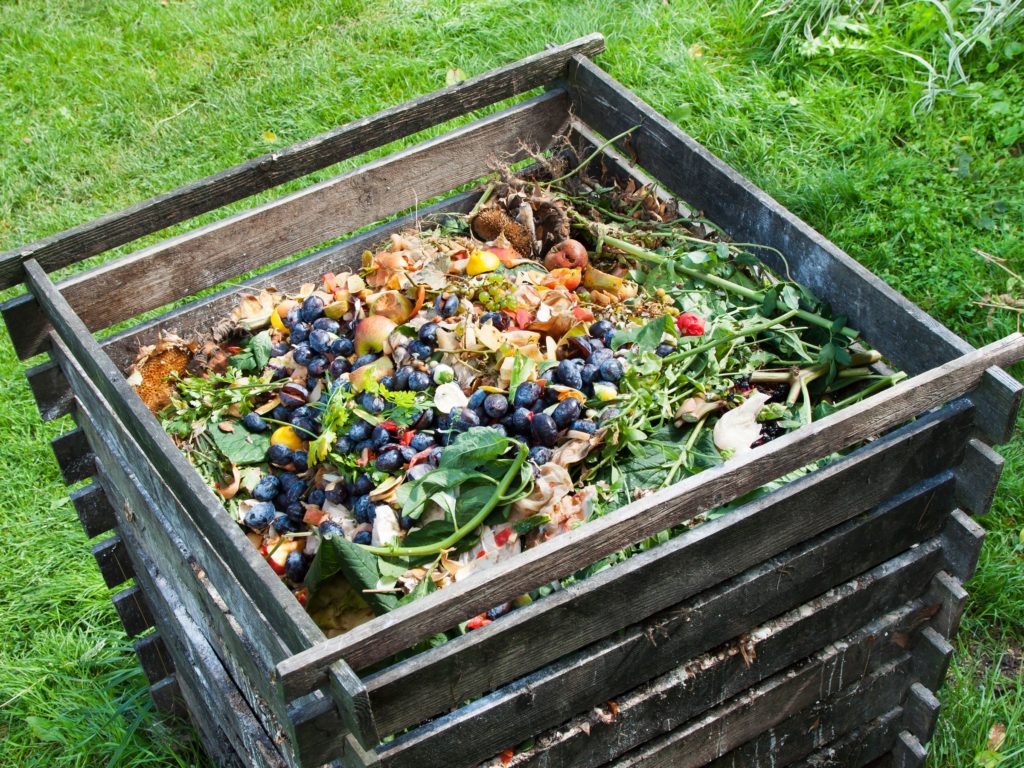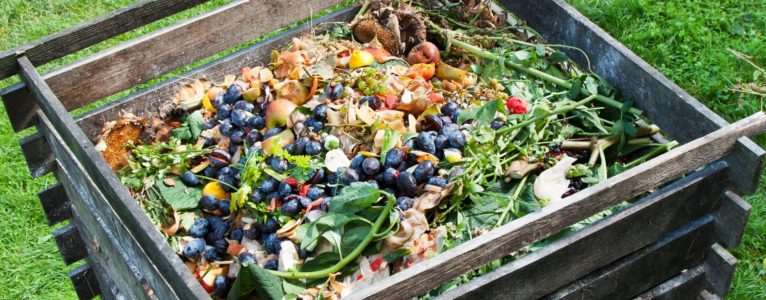
Studies have shown that over 51 percent of the trash that goes to landfills (including food scraps, paper, garden trimmings, and wood) is compostable. Once food reaches the landfills, the scraps begin to decompose, releasing methane gas into the atmosphere. Methane gas has a warming potential of roughly 21 times that of carbon dioxide, meaning it has an even larger impact on the global climate than CO2 By composting our food and other organic scraps, rather than throwing them away, we can actually help the environment instead of hurting it. Layering “browns” (dead leaves, branches, twigs, and paper) with “greens” (grass clippings, fruit scarps, old vegetables, and coffee grounds) in a compost pile or bin can create high-quality organic matter used to fertilize farms and gardens. By composting, we can close the nutrient cycle, put wasted food to good use, mitigate climate change and support the creation of arable soil.
Compost needs three essential elements
- Green material
- Brown materials
- Moisture
You can add almost anything from your kitchen and garden, some surprising organic material includes eggshells, cut flowers, paper filters, old newspapers, tea, and tea bags, hair (from pets and your own hairbrush), toothpicks, and even matches. The trick is to aim for equal amounts of “green” waste which include moist matter like fruits and vegetables, brown waste which is a dry matter which could be like dry materials like wood shavings, dry leaves or even old newspapers to keep your compost healthy.
Here are some dos and don’ts of composting to help you as you convert your kitchen and garden waste into nutritious compost for your soil and plants.
The Dos…..
- Do mix a variety of other vegetable food scraps with grass clippings and leaves. Clippings tend to compact, which may inhibit the flow of air through the pile.
- Do keep the pile damp, but never soggy.
- If adding food scraps, be sure to bury deep within the compost pile to avoid attracting rodents and stray dogs.
The don’ts….
- Don’t add fish, meat, dairy products, bones, fatty foods or grease to your compost pile. These food scraps do not easily decompose and may attract animals.
- Don’t use diseased plants or plants that are toxic to other plants. Also, avoid weeds, which produce abundant seeds, because they may not be killed during the composting process.
- Don’t add pet faeces or used kitty litter. Although they may eventually break down in compost, they also harbour bacteria, germs, viruses, and parasites.
Do Note:
- Without air your compost will start to rot and smell, so moisture will break everything down, sprinkle the compost with water every now and then.
- One must remember that the warmer the pile the faster the contents will break down and the faster you will be able to use its contents.
- Incorporate compost into your garden beds or sprinkle it on top. Remember, compost is not a replacement for your soil, but rather acts as a natural fertilizer to nurture your soil and plants, so add it a couple of times a year for best results.
(Sources: https://blogs.nicholas.duke.edu/)


